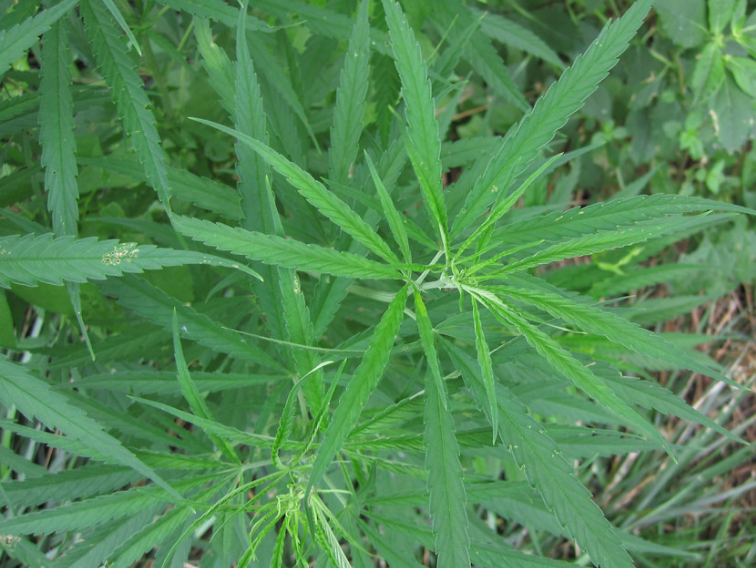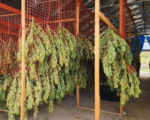Michigan’s booming cannabis industry faces a major hit as a new 24 percent wholesale tax kicks in next year, tucked into the state’s freshly signed budget. This move promises to pump hundreds of millions into fixing crumbling roads but has growers and sellers crying foul over rising costs that could squeeze everyday buyers. With a court fight brewing, the future of cheap weed in the Midwest hangs in the balance.
Governor Gretchen Whitmer put her signature on Michigan’s $81 billion state budget for fiscal year 2026 on October 7, sealing the deal just days after the Senate squeaked by with a 19-17 vote. The cannabis tax provision rode in as a key piece to fund a whopping $1.8 billion push for better roads, bridges, and other worn-out infrastructure. This tax targets cultivators and manufacturers at the wholesale level, adding a 24 percent bite on sales to retailers starting January 1, 2026.
Whitmer celebrated the bipartisan win in a statement, highlighting how it means safer drives for families across the state. She called it her seventh balanced budget, stressing the road improvements as a game-changer for Michigan drivers tired of potholes. Lawmakers from both sides hashed out the details amid tight deadlines to avoid a government shutdown.
The tax builds on existing levies, including a 10 percent excise tax at retail and a six percent sales tax. Early proposals floated a steeper 32 percent rate from Whitmer’s team, but talks trimmed it down to 24 percent to gain support.1 Fiscal experts in the Legislature crunched the numbers and project it will bring in $420.7 million each year, a boost that could ease pressure on general funds.
One short fact stands out here. This revenue stream aims to lock in long-term fixes without hiking gas taxes further.
Inside the New Tax: Who Pays and How It Hits the Chain
The wholesale tax applies to transfers from growers and processors to stores or other sellers, hitting the early stages of the supply chain hard. It covers everything from provisioning centers to full retail setups, based on the wholesale price at that point. For Michigan’s cannabis businesses, already navigating a crowded market, this could mean passing costs along, leading to higher shelf prices for consumers by mid-2026.
Industry watchers say the tax ignores the state’s oversaturated scene, where low prices have drawn shoppers from neighboring states like Ohio and Indiana. A recent analysis from the Michigan Municipal League notes how small towns rely on cannabis revenue for local services, and this levy might crimp that flow.2 Growers in rural areas, for instance, could see margins shrink fast if they can’t absorb the hit.
To break it down simply, here’s a quick look at the tax layers post-2026:
| Tax Type | Rate | Applies To |
|---|---|---|
| Wholesale Excise | 24% | Grower/processor to retailer transfers |
| Retail Excise | 10% | Final sale to consumer |
| Sales Tax | 6% | Added on retail price |
This table shows the stacked burden, which could push average prices up by 20 to 30 percent in some estimates. One grower shared that it feels like the state is double-dipping on an industry still finding its feet since legalization in 2018.
The provision zipped through as part of the budget urgency, leaving little room for tweaks. Now, businesses scramble to adjust forecasts.

Cannabis Industry Rallies Against the Tax Hike
Voices from the cannabis world erupted in protest right after the signing, with groups like the Michigan Cannabis Industry Association labeling it a “job killer” for small operators. Leaders argue the tax violates the spirit of voter-approved rules from 2018, which set specific tax structures to avoid such surprises. A legal challenge looms large, with talks of a lawsuit seeking an injunction to block the tax before it starts, potentially tying it up in courts for months.
Retired constitutional lawyer Robert LaBrant weighed in recently, questioning if the move holds up under state law, especially since it adds a layer not outlined in the original ballot measure.3
In response, Senate Democrats floated bills on October 2 to cap new dispensary licenses and halt large cultivation expansions, aiming to ease competition in the flooded market.4 This could help survivors weather the storm, but critics say it’s too little, too late.
- Key concerns from business owners include potential closures of up to 20 percent of small farms.
- Border towns fear losing out-of-state buyers if prices spike, hurting local economies.
- Some see a silver lining in forced consolidation, making room for bigger players.
These steps show the push-pull in Lansing, where road needs clash with industry growth.
Broader Ripples: From Potholes to Pocketbooks
Michigan ranks as the nation’s second-largest cannabis market, with sales topping $3 billion last year alone, per state data from the Cannabis Regulatory Agency. The tax could shift that dynamic, making the state’s low prices less of a draw and possibly slowing job growth in a sector that employs over 40,000 people. Everyday Michiganders might feel it at checkout, with a typical $50 eighth jumping to $60 or more, adding up for regular users and straining budgets amid rising living costs.
A Slate report from mid-October captured the outrage, noting how the deal traded weed affordability for infrastructure wins, but at what cost to innovation?1 For families in Detroit or Grand Rapids, smoother roads mean safer commutes, yet higher cannabis prices could pinch those using it for medical relief.
Experts from the Marijuana Policy Project highlight that while revenue sounds good, it risks underground markets rebounding if legal options get too pricey.5 One study by the Anderson Economic Group, released in September 2025, warned that such taxes could cut industry output by 15 percent in the first year.
This balance act underscores a bigger trend in states legalizing cannabis: chasing funds without choking the golden goose. Consumers in border areas might start shopping elsewhere, like Illinois with its higher baseline taxes but established caps.
Looking ahead, the budget’s other perks, like school funding boosts, soften the blow for some. But for the cannabis crowd, it’s a wake-up call to lobby harder.
The sting of this new 24 percent wholesale tax on Michigan’s cannabis world cuts deep, promising road repairs that benefit all while threatening the jobs and affordability that have made the industry a bright spot. As legal battles brew and prices climb, it’s clear this decision reshapes lives from farm fields to family budgets, stirring hope for fairer policies amid the frustration.
Maria Garcia is an award-winning author who excels in creating engaging cannabis-centric articles that captivate audiences. Her versatile writing style allows her to cover a wide range of topics within the cannabis space, from advocacy and social justice to product reviews and lifestyle features. Maria’s dedication to promoting education and awareness about cannabis shines through in her thoughtfully curated content that resonates with both seasoned enthusiasts and newcomers alike.








